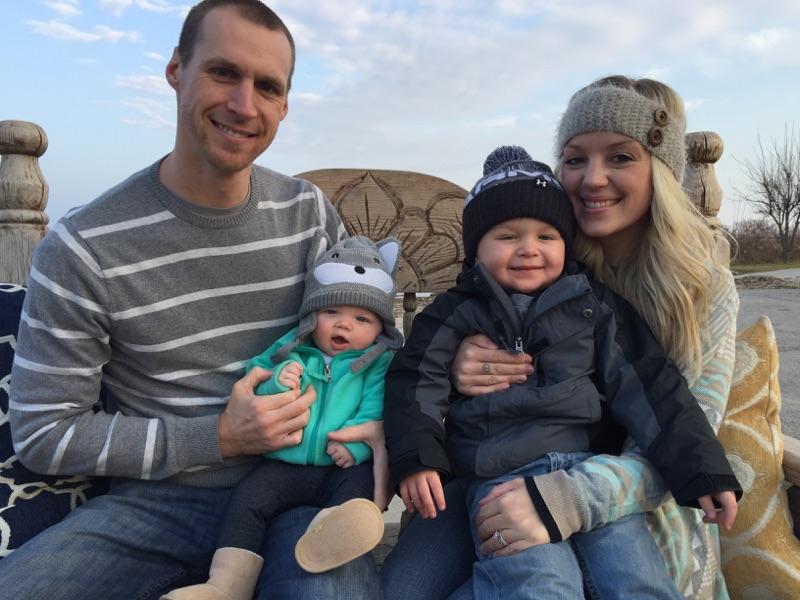Brian Spies has a degree in human biology and served four years as a Combat Medic with the U.S. Army, including a tour in Iraq. His wife Melody, who has known him since elementary school, describes him as “healthy, athletic, and full of life.”
But even with Brian’s medical training, he didn’t realize he was sick. Looking back, he remembers some fatigue and even some off-rhythm heartbeats, which he had attributed too much caffeine. What he didn’t know was that his heart was working too hard and it was about to give up.
On September 21st, 2015, Brian and Melody attended a youth football game with their kids and extended family. Brian entertained their three-year-old son, playing football and running around on the sidelines. He took a quick break, texted his dad an update on the score, and rested his hand on his newborn daughter’s stroller.
In the next instant, he looked up, met Melody’s eyes, and collapsed to the ground.
Melody’s cousin Julie, a traveling RN, rushed over and determined that Brian had no pulse. Her husband Andy, a 911 dispatcher, called for emergency medical help while Julie began CPR. Together the family performed CPR for eight full minutes before police arrived with an AED. Brian was shocked twice and revived.
He was transported by ambulance to his local hospital where an echocardiogram showed he had a severe leak in his mitral valve. That same night, Brian was moved to Aurora BayCare Medical Center for further tests and care.
Brian was treated by cardiologist Dr. Witmer, electrophysiologist Dr. Mehta, and cardiothoracic surgeon Dr. Roitstein. They determined his heart had gone into ventricular fibrillation, which caused the cardiac arrest. Within the week, Brian underwent open-heart surgery to replace his mitral valve. A few days later, he had a second surgery to install a permanent defibrillator in his heart. If he goes into ventricular fibrillation again, the device will shock his heart back into a normal rhythm.
Today, Brian is back to work and back to being an active dad.
“We often look back on that day and think about everyone who was there. We were in the right place, at the right time, with just the right people,” says Melody. “The majority of cardiac arrest victims aren’t so lucky, only 10.6% to be more exact. The numbers are alarming, and we count our blessings each day that Brian’s still here with us.”
The Spies family and friends are now working to provide local sports complexes with AED equipment and CPR training. You can follow their efforts at facebook.com/saveaheartmission.
Learn more about Aurora BayCare's cardiac care.
